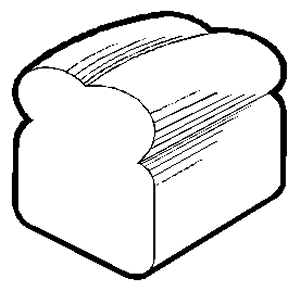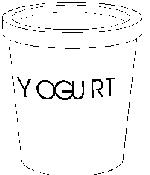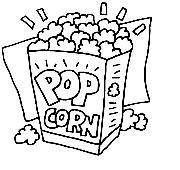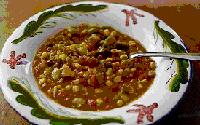

Introduction
Mom was right. Breakfast is the most important meal of the day (at least one of the three most important meals). Breakfast is the fuel that keeps your body running throughout the day. Your brain and nervous system need food to function. That means all physical and mental activity, including walking, speaking, working, playing, and, especially in the case of students learning requires this fuel.
Unfortunately it's just too easy to skip breakfast. You're in a rush, you or your children would prefer to sleep a little later, or it's too hectic getting the kids off, and you can't seem to find the time. However, it is vitally important that your students eat something before school. If they don't eat anything in the morning, they are literally forcing their bodies to run on an empty tank. If the last time they ate was 6 p.m. last night, and they don't eat lunch until noon today, that's eighteen hours of starving their brain cells. They become drowsy and are not able to concentrate on their schoolwork. Eating highly sugared breakfasts, such as sugary cereals, pop tarts or donuts also causes problems. The student's blood sugar soars and then suddenly drops, leaving the students feeling ill. They often wind up in the nurse's office with headaches or stomachaches.
If your child does not like traditional breakfast foods, there are plenty of alternatives available. Warmed up leftovers are excellent: pizza, soups, and pastas. Some are portable for eating in the car or while walking to school. Peanut butter on bread, toast or crackers works well. What child would turn down popcorn for breakfast? Yogurt, cheese and crackers, fruit, smoothies, or hot cereals are good choices.
A new study from Harvard University indicates that people who eat breakfast daily may be less likely to succumb to obesity, diabetes, and cardiovascular disease. Why? Eating breakfast regularly helps control your appetite throughout the day, which means you are less likely to overeat later. A good breakfast also helps regulate your body's blood sugar.
Another study of 2,700 adults who reported eating breakfast every day had a 35 to 50 percent reduced chance of becoming obese, or developing insulin resistance syndrome. This syndrome is a precursor to diabetes in which the body experiences a loss of sensitivity to insulin. Insulin is a hormone that is key to the regulation blood sugar.
So remember, what you eat is just as important as making sure you eat breakfast. Refined grain cereals and bacon and eggs had no effect on reducing the risk of obesity and diabetes. The best breakfast food is a whole grain cereal, especially oatmeal. Another study reported in The Journal of Family Practice concluded that oat cereals work so well at lowering blood pressure, people who are taking hypertension medication can possibly lower their dosage if they eat an oatmeal breakfast every day. However, be sure to check with your physician before changing any dosage of your medications. Other studies have shown that oatmeal will lower cholesterol if it is eaten on a daily basis.
One more study researched by Dr. John Schlife on three different breakfast groups. The first group are people who had no breakfast which revealed that skipping breakfast trains the body to store calories. When meal skippers finally eat something, the body stores rather than burns because the metabolism has been slowed down. Second group, had any type of food for breakfast, but just eating anything for breakfast (bacon, sausage, sweet pastries, etc. is usually high in fat and these extra calories usually slow down weight loss attempts. The last group had cereal for breakfast and cereal is a clean-burning source of energy that is both filling and low in calories. This is why the new federal guidelines allow cereal makers to state on the package that whole grain products assist weight loss.
Disclaimer: This information is not intended be a substitute for professional medical advice. It is provided for educational purposes only. You assume full responsibility for how you choose to use this information.
 |
 |
 |
 |
 |
 |
 |
 |
 |
 |
 |
 |
Resource: Service for Life, "Insider tips for healthy, wealth & happy living. Thorp, B. Vol. IV, Issue 40, 3/2007